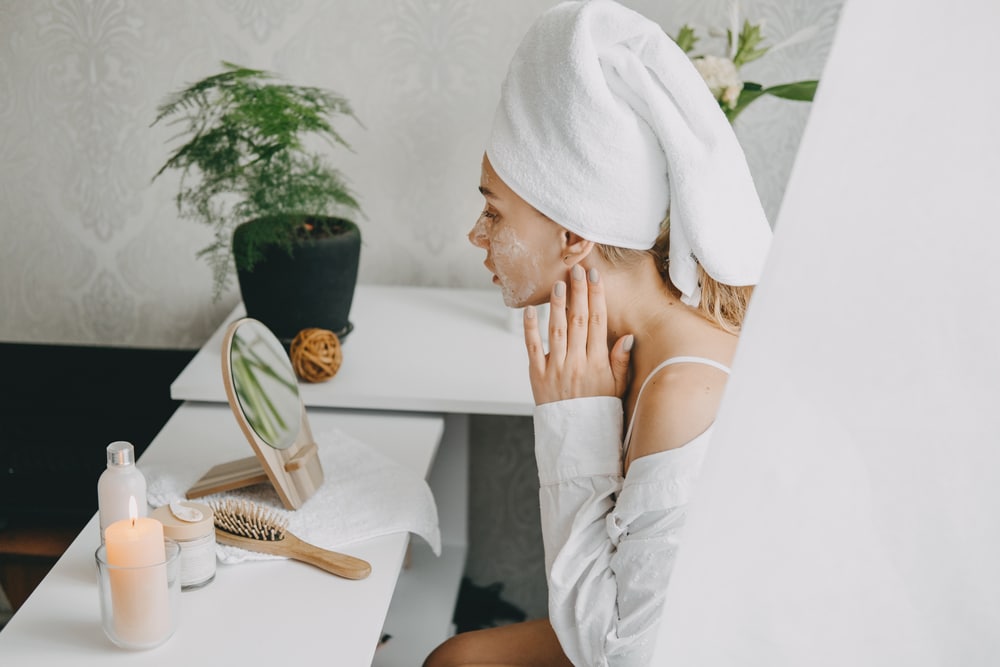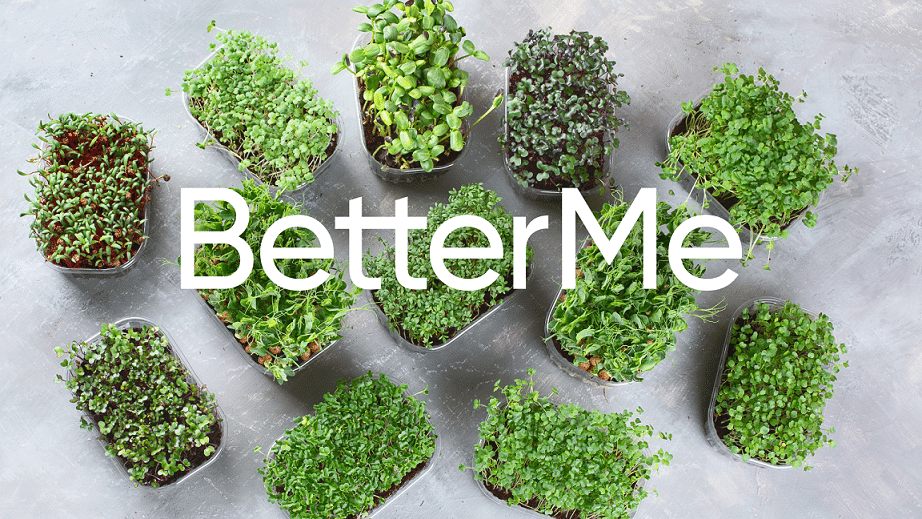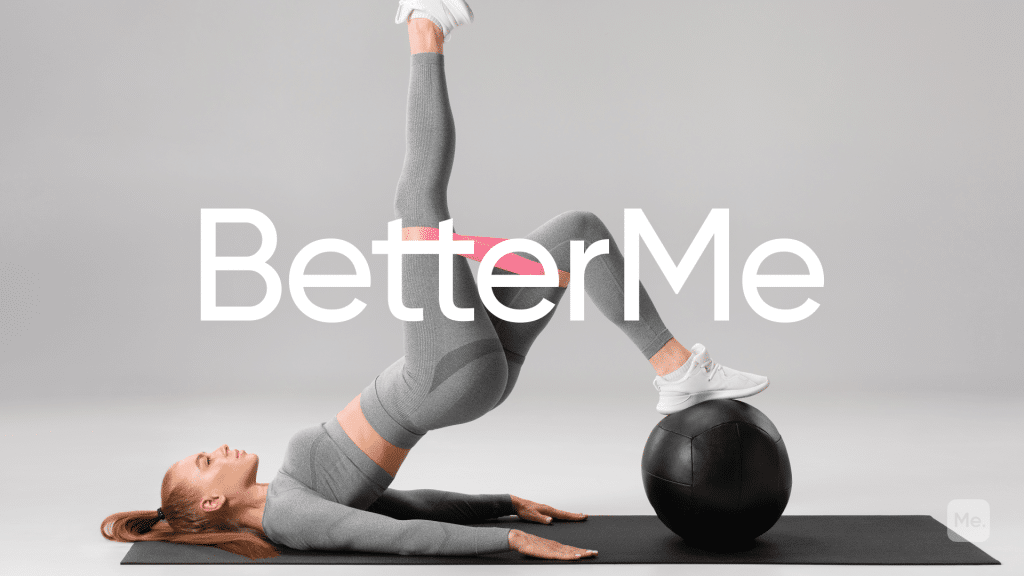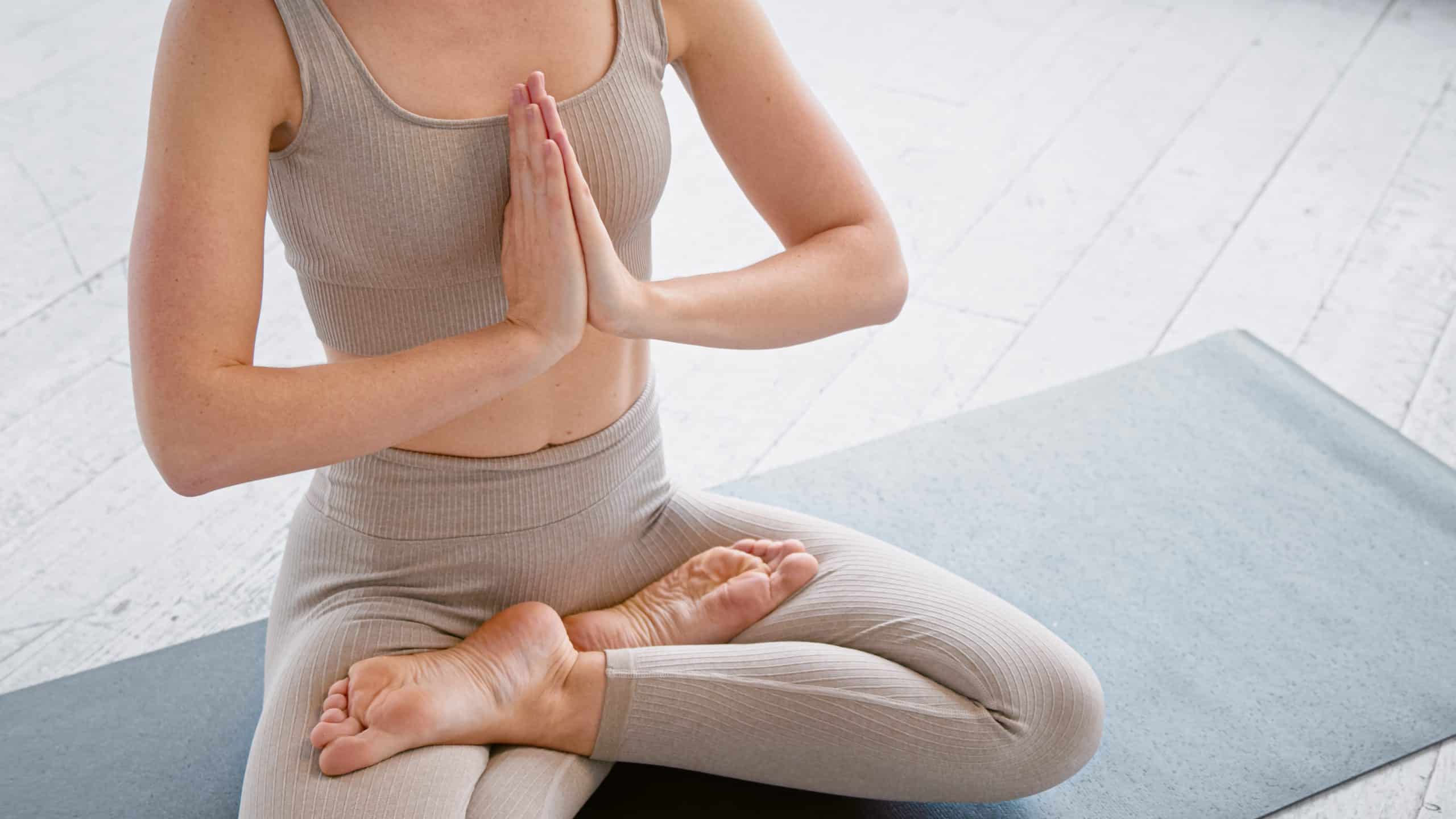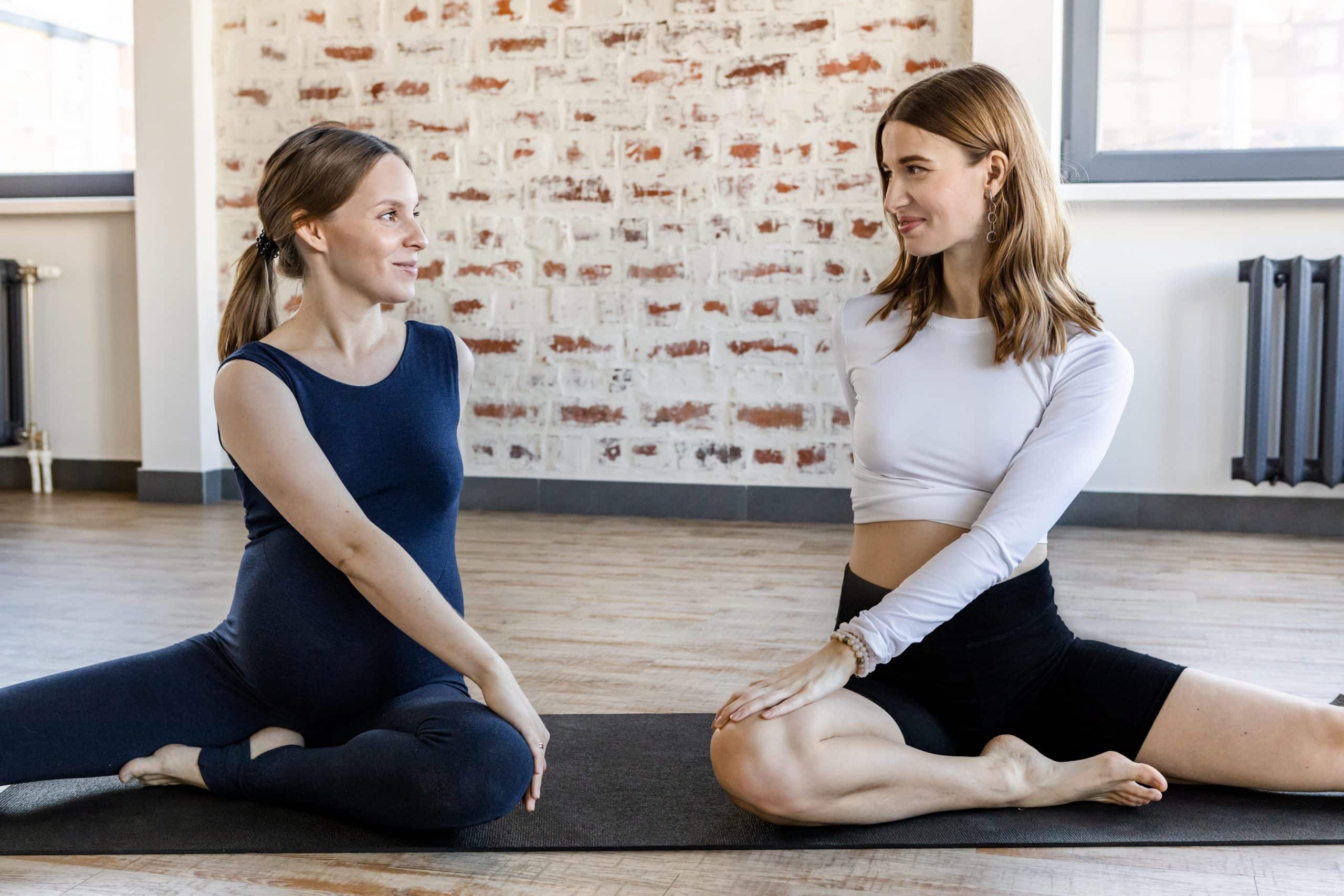If you happened to go to any social media platform right now and type in the word or hashtag ‘selfcare’ you will likely come across a multitude of videos and pictures showing put-together-people applying skincare, possibly sitting down to read a book on their balcony, or even watching the sunset in a bathtub while enjoying a glass of champagne. This is the self care that many of us are aware of and exposed to on an almost everyday basis. But have you heard that there are different types of self care – and that almost all of them are not nearly as extravagant or aesthetic as what you see on social media? In today’s article we are going to introduce to you those other types of self-care and explain to you why you should try as much as you can to incorporate them into your lifestyle.
Get your personalized
meal plan!
What Is Self Care?
As we have said, self care is more than taking care of the skin, reading, or finding a way to relax. There are two ways to define this term
According to the World Health Organization, it is the ability of individuals (as well as families and communities) to promote health, prevent disease, maintain health, and cope with illness and disability with or without the support of a health worker (4).
In line with this definition, the WHO believes that there are 6 types of self care, namely health promotion, disease prevention and control, self-medication, providing care to dependent persons, seeking hospital/specialist/primary care if necessary, and rehabilitation (6).
The second definition – and what we shall be looking at today – comes from a paper published in the Journal of Counselling Psychology. In this paper, the author defined self-care as a multidimensional, multifaceted process of purposeful engagement in strategies that promote healthy functioning and enhance well-being (1). The words multidimensional and multifaceted clearly tell that this is a layered practice that goes beyond the aesthetic that we tend to see online.
Read More: 7 Reasons Why Dancing Is Good For Your Mental Health
How Many Types Of Self Care Are There?
This depends on who you ask. Using the WHO definition, we only have 6 types of self care. However, by the second definition of this practice, we canbelieve that we have 8 types of self care that can help us take control, improve, and reduce stress in different areas of our lives.
What Are The Different Types Of Self Care?
As previously mentioned, self care isn’t simply about lighting a candle, drinking lemon water, and sitting in the bathtub enjoying the feeling of now. Instead, it is a practice that covers a large portion of your life which helps you practice self love in more ways than one.
If you were wondering what are the types of self care that can help you do this, take a look at the list below
-
Physical Self Сare
This is the one type of self care that most of us are familiar with, simply because it is the most visible one online. As the name suggests, it involves taking care of your physical self aka your body.
This involves doing basic but necessary things to enhance your well being such as
- Brushing your teeth
- Eating something fresh and healthy
- Being active – This doesn’t necessarily mean heading out to the gym. It can involve simple tasks such as running around with your dog, playing with your kids, taking a walk to the local park or hiking up a trail, dancing in the house, etc.
- Taking a relaxing bath
- Taking a nap to catch up on sleep, especially after a busy/stressful week.
- Drinking water
- Changing out of your pajamas
- Washing and fixing your hair, etc.
As you can see, these are just simple, basic and yet mindless practices that can go a long way in helping you relax. Physical self care known as Bustle is defined as the baseline/foundation to all kinds of self care, as without it everything else is most likely going to fall apart.
-
Emotional Self Care
When was the last time you just sat with your emotions and really ‘felt them’? In today’s world, we have many distractions -such as binging on TV shows, drinking, etc. – that can help us ignore our emotions – especially the heavy and negative ones such as anger, sadness, grief, or anxiety.
Emotional self care seeks to provide you with healthy coping mechanisms that can help you sit and fully process these heavy and uncomfortable emotions. When you practice this you eventually will be able to not only acknowledge and process your feelings successfully, but you will also be able to express them regularly and safely without hurting yourself or others around you.
Some examples of emotional self care include:
- Journaling and practicing gratitude.
- Seeking therapy.
- Listening to music.
- Meditation.
- Creating art.
- Utilizing affirmations or meditation mantras.
While emotional self care mostly deals with processing heavy feelings, it can also involve actively staying away from issues that trigger negative emotional responses from you. This could include:
- Staying away from people who often choose to criticize or insult you.
- Choosing not to watch the news – As much as the news is important, today’s headlines are filled with horrible matters like mass shootings, war, death, etc. that could even trigger panic attacks in people.
If you struggle to even flirt with the idea of giving up your favorite foods or working out till your legs give way – BetterMe app is here to breathe a fresh perspective into the way you view the weight loss process! Check out the app and experience the fun side of fitness and dieting with BetterMe!
-
Mental Self Care
With the numerous conversations about mental health today, we all know how important it is to take care of our mental health and how prevalent mental illness is within our communities. In this case, however, mental self care isn’t just in relation to illnesses such as depression and anxiety.
Instead, mental self care (aka intellectual selfcare) refers to activities that promote your intellect and positively impact your psychological well-being – think of it as mental fitness. It’s being intentional about giving your brain a new challenge – something to learn so it can remain sharp.
Some intellectual selfcare examples include:
- Watching an educational documentary about wildlife or a different country.
- Learning a new language.
- Listening to a podcast or an audiobook.
- Doing puzzles.
- Picking up a new skill/hobby eg knitting, making bread/pasta from scratch, etc.
-
Social Self Care
This involves doing activities that help nurture positive (and fun) relationships with our friends and family. Humans are social creatures and we need others to survive and thrive. Do not neglect your social circle in the name of a busy schedule.
Make time to hangout with your friends and family, as often as you can – even if it means doing it for an hour. Find activities that your friends like doing and organize a meet up around such an activity.
-
Spiritual Self Care
Spirituality means different things to different people. For some, it could be rooted in religion and centered around a higher power/being. For others, spirituality could mean understanding self and connecting with the universe.
Examples of this form selfcare include:
- Going to the mosque, church, temple, or any other place of worship.
- Meditation or prayer.
- Yoga.
- Taking a walk or sitting out in nature.
Read More: Is Mental Fitness Important? Definition And Tips To Improve Mental Wellbeing
-
Professional Self Care
When it comes to self care, thinking about work is the absolute last thing that many of us would want to do, and with good reason. It is among the things that cause many of us stress and sleepless nights (7).
That said, taking some time to seriously think and plan matters in your professional life could actually lead to less stress. Examples of professional selfcare include:
- Learning or developing skills that could help further your career or climb up the corporate ladder.
- Setting (and sticking to) work boundaries with your co-workers and even the boss.
- Managing your time better so you can complete all your tasks on time.
- Planning your day, week, or even month ahead of time – which would keep you on track and ensure that you are less stressed about deadlines.
- Finding a good and workable work-life balance.
-
Financial Self Care
Just like with our careers, finances are another huge cause of stress, anxiety and depression among many people regardless of age, race, or social standing (2). Financial self care means finding ways to not only achieve your monetary goals, but to also track your income and expenditure so you can save more and stress less.
Some ways to practice this include:
- Making and sticking to a budget – Many of us are horrible at the ‘sticking to it’ part but trust us, it pays off in the long run.
- Listening to financial content creators – People who speak about finances often get a bad rap for being. unrelatable to the masses. However, not all of them are like that. Find people with the same background as you, those who started from where you are and are making it – or have made it.
- Track all your expenses – This helps you find out what activities are siphoning money from your account.
-
Home/Environmental Self Care
While your body is your first home, your house/physical environment is your second one. In the same way that the other forms of self care can work with a good foundation of physical self care, so can they not work in a dirty and messy environment.
You would not bring friends or family to a dirty house as you would be embarrassed. It is hard to think straight or feel at peace in a messy room. Finding Zen in the middle of piles of clothes or dirty dishes is practically impossible.
Be sure to clean your house/room or desk and keep everything in its place. Remember that organizing things is also a form of meditation – as you sift through your material belongings, so can you sift through and catalog your thoughts and emotions.
Whether you’re a workout beast or just a beginner making your first foray into the world of fitness and dieting – BetterMe has a lot to offer to both newbies and experts! Install the app and experience the versatility first-hand!
Why Are The Different Types Of Self Care Important?
So, why bother practicing all the above mentioned types of self care to begin with? The benefits of self care include
- Reduced stress and anxiety – Self care is a great way to analyze your life and get yourself in order. When you are organized and have a plan, you are less likely to spiral and think about how everything could go wrong. One study done in 10 countries found that people who practiced different modes of self care from working out, to mind-body therapies and even something as simple as taking dietary supplements were less stressed and anxious (3).
- Reduced stress and improved quality of life – In a study done via questionnaires between December 2015 and March 2016, researchers found that people who engaged in different forms of this practice reported to be less stressed and have a better quality of life than those who had no form of self care regimen (5).
- Reduced burnout and increased happiness – Things like setting boundaries at work and at home, working out, cleaning your room, having a laugh with friends, seeking therapy, and planning your day may seem small or even tedious at first but cumulatively they are a source of joy and help you have more time and freedom to enjoy your life without always fretting about something.
FAQs
What Are The Types Of Self-Care Techniques For Mental Health Issues?
Would you believe that all the above mentioned types of self care also work for mental health issues? If you take a closer look at the different types of self care listed above, you will notice that they are not only all interconnected, but also that practicing them is a great way to reduce stress in your life.
Simple self care activities like organizing your work area, being more active, relaxing and sleeping, getting more in touch with your emotions, seeking connection with a higher power, taking better care of your finances, practicing gratitude etc. are a great way to counter and manage many common mental health issues such as anxiety, stress, and depression.
What Are The 6 Types Of Self Care?
While the World Health Organization may list 6 types of self care for health, as individuals, we have 8, not just 6 types of selfcare. They include physical, intellectual, social, financial, emotional, environmental, professional and spiritual self care.
The Bottom Line
Self care is not a vain practice as some may assume. It is instead a necessary practice that all of us should make time for if we want to live more healthy, happy and fulfilling lives. If your life has been feeling a little out of control, take a minute, breathe and find a way to incorporate all these types of self care in your life. Chances are that by doing this you will be able to get your life and mental health back on track in no time.
DISCLAIMER:
This article is intended for general informational purposes only and does not serve to address individual circumstances. It is not a substitute for professional advice or help and should not be relied on for making any kind of decision-making. Any action taken as a direct or indirect result of the information in this article is entirely at your own risk and is your sole responsibility.
BetterMe, its content staff, and its medical advisors accept no responsibility for inaccuracies, errors, misstatements, inconsistencies, or omissions and specifically disclaim any liability, loss or risk, personal, professional or otherwise, which may be incurred as a consequence, directly or indirectly, of the use and/or application of any content.
You should always seek the advice of your physician or other qualified health provider with any questions you may have regarding a medical condition or your specific situation. Never disregard professional medical advice or delay seeking it because of BetterMe content. If you suspect or think you may have a medical emergency, call your doctor.
SOURCES:
- “Development of a self-care assessment for psychologists”: Correction to Dorociak (2017) (2019, pubmed.ncbi.nlm.nih.gov)
- Financial stress and depression in adults: A systematic review (2022, journals.plos.org)
- Self-care for anxiety and depression: a comparison of evidence from Cochrane reviews and practice to inform decision-making and priority-setting (2020, bmccomplementmedtherapies.biomedcentral.com)
- Self-care interventions for health (n.d., who.int)
- U.S. medical students who engage in self-care report less stress and higher quality of life (2018, bmcmededuc.biomedcentral.com)
- WHO Guideline on self-care interventions for health and well-being (2021, who.int)
- Work stress precipitates depression and anxiety in young, working women and men (2007, ncbi.nlm.nih.gov)
